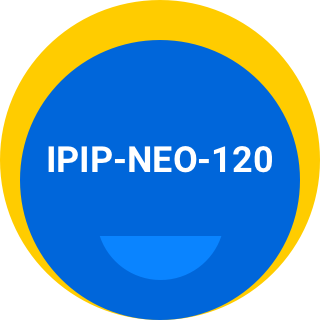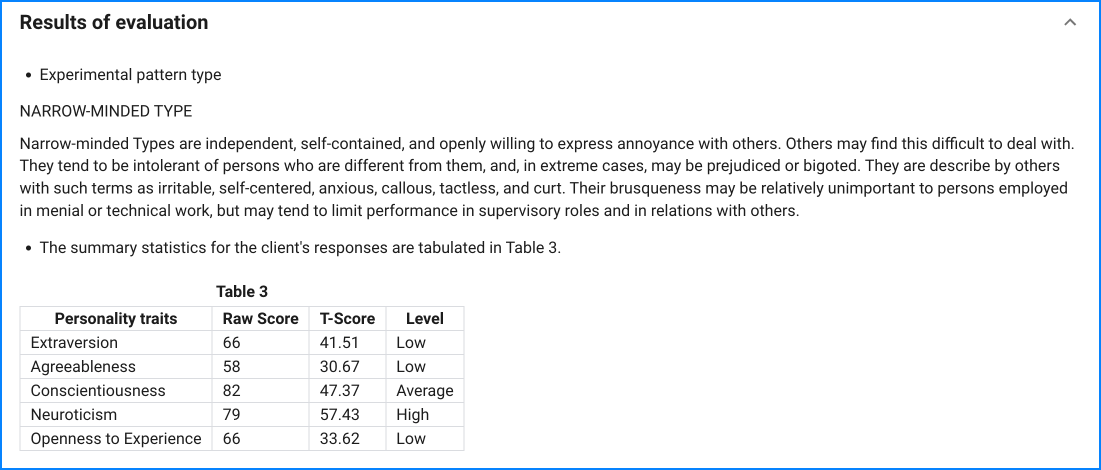The scoring and narrative report routines for these items were created by Dr. John A. Johnson, Professor of Psychology, Penn State University.
Dr. John A. Johnson’s IPIP-NEO Data Repository on the Open Science Framework: https://osf.io/tbmh5/.
Start delivering measurement based mental health care
Conduct psychological assessments remotely, get scores automatically, and maintain clinical records securely
Create account

IPIP-NEO-120 is a publically available representation of five domains and 30 facets of the Five Factor Model (Neuroticism, Extraversion, Openness, Agreeableness, and Conscientiousness), drawing 120 items from the International Personality Item Pool.
You can create a free account on PsyPack to access fillable PDFs, manuals and educational resources for the IPIP-NEO-120
The scoring and narrative report routines for these items were created by Dr. John A. Johnson, Professor of Psychology, Penn State University.
Dr. John A. Johnson’s IPIP-NEO Data Repository on the Open Science Framework: https://osf.io/tbmh5/.
Development of the IPIP-NEO-120 and its reliability and validity are described in the following publication:
Johnson, J. A. (2014). Measuring thirty facets of the five factor model with a 120-item public domain inventory: Development of the IPIP-NEO-120. Journal of Research in Personality, 51, 78-89. https://doi.org/10.1016/j.jrp.2014.05.003
Here is how to score IPIP scales:
For + keyed items, the response "Very Inaccurate" is assigned a value of 1, "Moderately Inaccurate" a value of 2, "Neither Inaccurate nor Accurate" a 3, "Moderately Accurate" a 4, and "Very Accurate" a value of 5.
For - keyed items, the response "Very Inaccurate" is assigned a value of 5, "Moderately Inaccurate" a value of 4, "Neither Inaccurate nor Accurate" a 3, "Moderately Accurate" a 2, and "Very Accurate" a value of 1.
Once numbers are assigned for all of the items in the scale, just sum all the values to obtain a total scale score.
The "pattern types" are based on Hofstee, De Raade, and Goldberg's AB5C model of personality. A person's two most extreme scores (high or low) determined their pattern.
The computer program that generates this report classifies you as low, average, or high in a trait according to whether your score is approximately in the lowest 30%, middle 40%, or highest 30% of scores obtained by people of your sex and roughly your age. Your numerical scores are reported and graphed as percentile estimates. For example, a score of "60" means that your level on that trait is estimated to be higher than 60% of persons of your sex and age.
John A. Johnson wrote descriptions of the five domains and thirty subdomains. These descriptions are based on an extensive reading of the scientific literature on personality measurement.
PsyPack can automatically score the IPIP-NEO-120 assessment and prepare corresponding tables and graphs.

Personality
The purpose of the evaluation is to:
Self-administered
Clinical
Questionnaire
10 years and above
10-20 minutes
Note: The scoring tools/norms used for this report is obtained from https://osf.io/jxpu4/.
Johnson, J. A. (2014). Measuring thirty facets of the Five Factor Model with a 120-item public domain inventory: Development of the IPIP-NEO-120. Journal of Research in Personality, 51, 78-89.